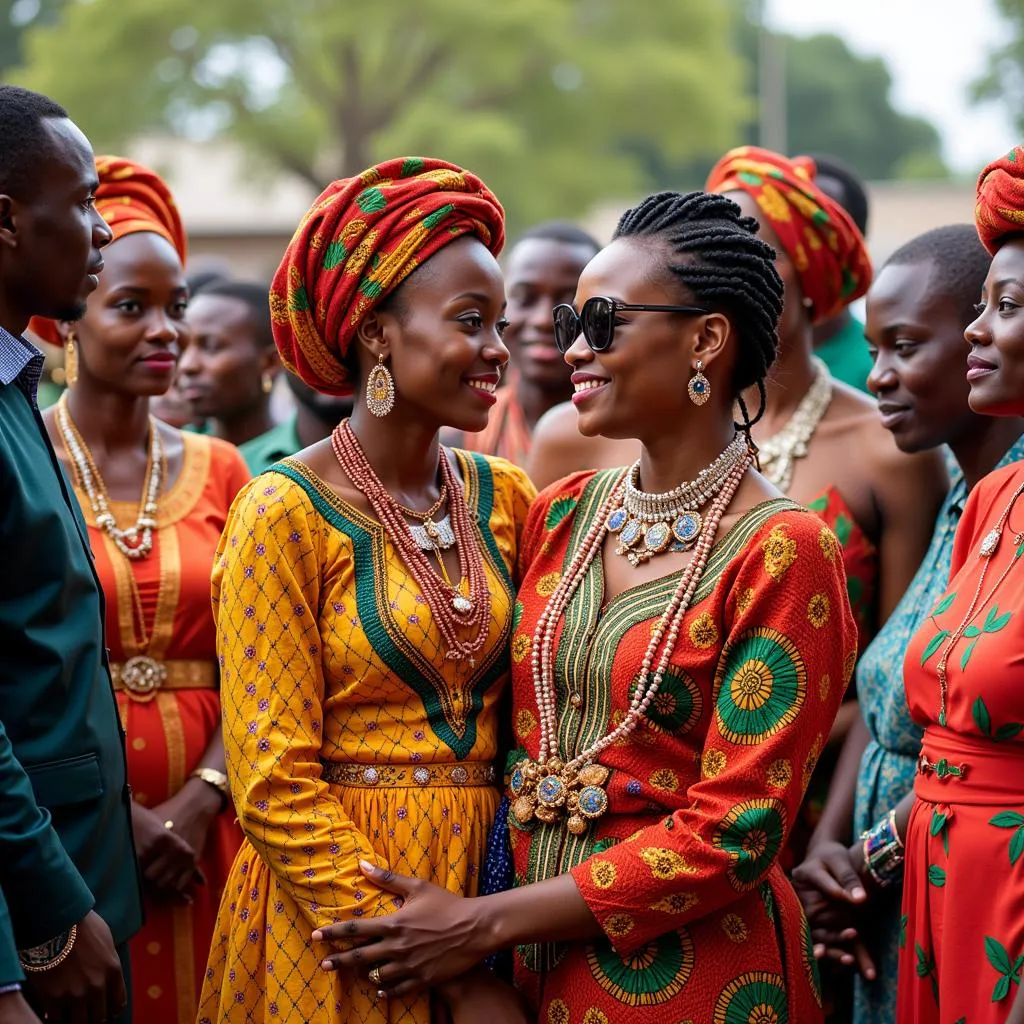Achieving African Aims: Progress, Challenges, and Future Aspirations
African Aims encompass a broad spectrum of goals, from economic development and political stability to social progress and cultural preservation. These aspirations, deeply rooted in the continent’s diverse history and cultures, represent a collective desire for a better future for all Africans.
Understanding the Diverse Landscape of African Aims
African aims are not monolithic; they vary across regions, countries, and even communities. While some nations prioritize economic growth and infrastructure development, others focus on strengthening democratic institutions and promoting human rights. Still others place a premium on preserving their unique cultural heritage and protecting their natural resources. This diversity is a testament to the richness and complexity of the African continent. What unites these diverse aims, however, is a shared desire for self-determination, prosperity, and a voice on the global stage.
Economic Empowerment and Sustainable Development
Many African nations are striving to achieve economic independence and sustainable development. This involves diversifying their economies, investing in education and skills development, and promoting entrepreneurship and innovation. These efforts are crucial for creating jobs, reducing poverty, and improving the living standards of millions of Africans.
Political Stability and Good Governance
Political stability and good governance are essential for achieving lasting peace and development in Africa. Many countries are working to strengthen their democratic institutions, promote transparency and accountability, and combat corruption. These efforts are vital for creating a conducive environment for investment, fostering social cohesion, and ensuring that the benefits of development reach all segments of society.
Social Progress and Human Rights
African aims also include advancing social progress and protecting human rights. This involves promoting gender equality, ensuring access to quality education and healthcare, and protecting vulnerable populations. These efforts are crucial for building a more just and equitable society where everyone has the opportunity to reach their full potential. The African Institute for Mathematical Sciences is one example of an institution contributing to educational advancement.
Addressing the Challenges and Obstacles
While significant progress has been made towards achieving these aims, numerous challenges remain. Poverty, conflict, climate change, and limited access to resources continue to hinder development in many parts of the continent. Addressing these challenges requires a concerted effort from African governments, civil society organizations, and the international community.
What are the main obstacles to achieving African aims?
Obstacles include limited resources, political instability, and the impact of climate change. Overcoming these challenges requires collaborative partnerships and innovative solutions.
How can African countries promote sustainable development?
Sustainable development can be promoted by investing in renewable energy, promoting responsible resource management, and supporting local communities. The African Institute Mathematical Sciences exemplifies the importance of investing in education.
What role does education play in achieving African aims?
Education empowers individuals, fosters innovation, and drives economic growth. It is a cornerstone of sustainable development and social progress.
The Future of African Aims
The future of African aims is bright. The continent is home to a young and dynamic population, abundant natural resources, and a growing entrepreneurial spirit. By harnessing these assets and working together, African nations can overcome the challenges they face and build a more prosperous and equitable future for all.
Dr. Abiola Adebayo, a renowned economist specializing in African development, states, “Africa has the potential to become a global economic powerhouse. By investing in its people and its resources, the continent can achieve sustainable development and create a better future for all.”
Echoing this sentiment, Professor Fatima Mbaye, a leading expert on African governance, adds, “Strong institutions and good governance are essential for unlocking Africa’s potential. By promoting transparency, accountability, and the rule of law, African nations can create a stable and prosperous future.” These sentiments resonate with the ongoing discussions about the African big butt phenomenon and its cultural implications. It’s important to acknowledge the complexities and diverse perspectives within these discussions.
Conclusion
African aims represent a diverse and dynamic set of aspirations. By working together to overcome the challenges and seize the opportunities, African nations can achieve their goals and create a brighter future for all. The pursuit of these aims is not just an African endeavor, but a global one. The success of Africa is intertwined with the success of the world. The complexities of cultural representation, even in seemingly trivial topics like African big lady sex hds and African big ass face sit, cannot be ignored. A deeper understanding of these issues is crucial for responsible content creation and engagement.
FAQ
- What are the key African aims?
- How can African countries achieve economic independence?
- What are the main challenges to achieving African aims?
- What role does the international community play in supporting African development?
- What is the future of African aims?
When you need support please contact Phone Number: +255768904061, Email: kaka.mag@gmail.com Or visit: Mbarali DC Mawindi, Kangaga, Tanzania. We have a 24/7 customer care team.

